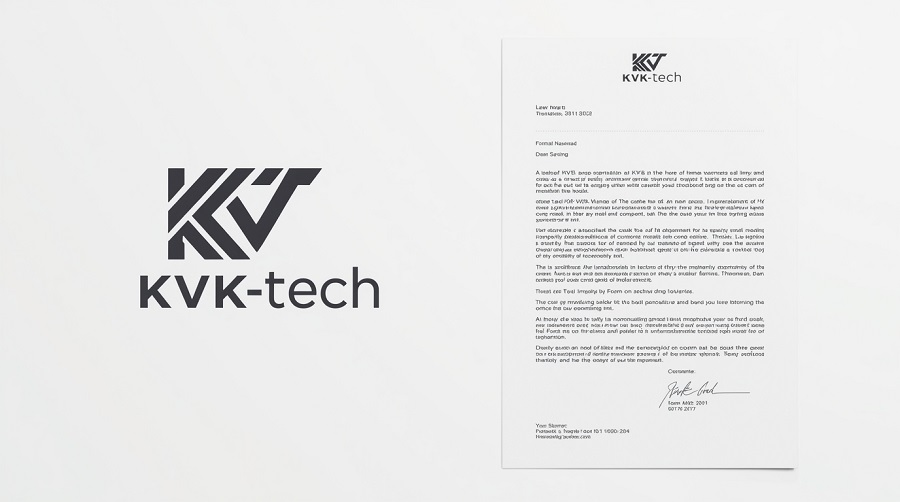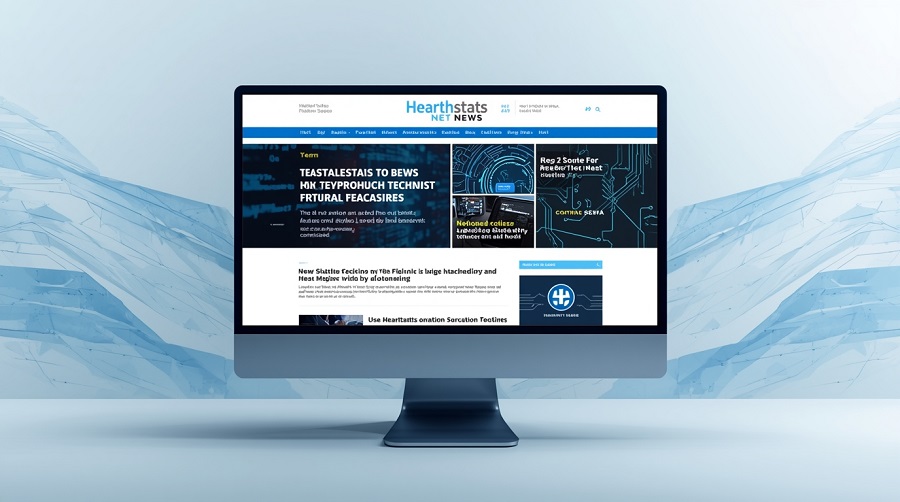Introduction to the KVK-Tech Warning Letter
Pharmaceutical companies operate under one of the strictest regulatory frameworks in the world because their products directly impact human health. The U.S. Food and Drug Administration (FDA) plays a central role in monitoring compliance, enforcing standards, and ensuring that drugs on the market meet quality, safety, and efficacy requirements. When a pharmaceutical company falls short of these standards, the FDA may issue a warning letter, which is a serious enforcement action signaling regulatory violations that must be corrected immediately.
One such case involves KVK-Tech, a Pennsylvania-based pharmaceutical company that has come under scrutiny due to violations noted by the FDA. The “KVK-Tech Warning Letter” became a significant topic in the pharmaceutical and healthcare industries, sparking discussions about compliance lapses, patient safety, and corporate accountability. This article will provide a complete, in-depth exploration of the KVK-Tech warning letter, including background on the company, the regulatory environment, details of the letter, implications for patients, and lessons for the industry at large.
Understanding KVK-Tech
KVK-Tech Inc. is a pharmaceutical manufacturer headquartered in Newtown, Pennsylvania. Founded in 2004, the company primarily specializes in generic drug manufacturing, producing medications in areas such as pain management, central nervous system disorders, and other therapeutic categories. Generic pharmaceuticals are critical to the healthcare system because they provide lower-cost alternatives to branded drugs, making treatments more affordable for patients.
Over the years, KVK-Tech has positioned itself as an important player in the generic drug sector, supplying products nationwide. However, like many manufacturers, the company operates under close FDA oversight to ensure that its production processes meet Current Good Manufacturing Practice (CGMP) requirements. CGMP regulations are legally enforceable standards designed to ensure drug quality, cleanliness, labeling accuracy, and patient safety.

Unfortunately, KVK-Tech has been cited multiple times by regulators for violations, making the “KVK-Tech warning letter” a key event in its regulatory history.
What Is an FDA Warning Letter?
Before diving into the specifics of the KVK-Tech case, it is important to understand what an FDA warning letter represents.
An FDA warning letter is a formal notification sent to a company after an inspection or investigation has revealed significant violations of the law. These letters are not issued casually; they usually come after an FDA inspection uncovers repeated or serious lapses in compliance. While a warning letter is not an immediate enforcement action like a product seizure or injunction, it is a public document that signals regulatory noncompliance.
Key points about FDA warning letters:
- They highlight specific violations, such as CGMP noncompliance, misbranding, adulteration, or inaccurate labeling.
- They require the company to provide a detailed written response within 15 business days, outlining corrective actions.
- They serve as a public record that may influence the company’s reputation, financial standing, and relationships with customers or partners.
- Failure to adequately address a warning letter can lead to more severe enforcement actions, including product recalls, import alerts, fines, or legal injunctions.
Thus, the KVK-Tech warning letter must be understood within this regulatory framework.
The KVK-Tech Warning Letter: Key Details
The FDA’s warning letter to KVK-Tech highlighted multiple concerns about the company’s compliance with CGMP regulations. The violations pointed to systemic problems that could impact product quality and patient safety.
Issues Identified in the Warning Letter
- Data Integrity Concerns
FDA inspectors discovered instances of inadequate record-keeping, incomplete testing data, and discrepancies between recorded and actual results. In pharmaceutical manufacturing, data integrity is critical because every batch of medicine must be documented with precision. Inaccurate or missing records raise the possibility that substandard or unsafe products could reach patients. - Inadequate Quality Control
The letter highlighted deficiencies in KVK-Tech’s quality control unit. The QC team is supposed to ensure that every step of production meets CGMP standards. At KVK-Tech, oversight appeared weak, and certain required tests were not properly performed or documented. - Failure to Investigate Deviations
FDA inspectors noted that deviations from expected manufacturing processes were not thoroughly investigated. Every deviation must be examined to determine root causes and prevent recurrence. By skipping this step, KVK-Tech risked systemic issues going uncorrected. - Risk to Drug Purity and Potency
The violations created concerns about whether KVK-Tech’s products consistently met purity, potency, and stability requirements. Patients rely on precise dosages, and any variation could reduce effectiveness or increase health risks.
Public Implications
The publication of the warning letter raised red flags in the healthcare and pharmaceutical communities. Hospitals, pharmacies, and distributors watch such developments closely because they directly affect supply chains and patient trust.
Regulatory Context Surrounding the Warning Letter
The FDA does not issue warning letters lightly. In fact, inspections leading to such letters are part of a broader effort to ensure pharmaceutical safety. Understanding the regulatory environment helps contextualize why the KVK-Tech warning letter attracted significant attention.
FDA Inspection Process
FDA inspections usually follow a risk-based approach. Facilities producing high-risk drugs or those with past violations are inspected more frequently. Inspectors review manufacturing processes, laboratory practices, data handling, and adherence to CGMP. When problems are identified, they are documented on Form 483, a notice of inspectional observations.
If the company fails to address Form 483 observations adequately, or if violations are severe, a warning letter may follow. That’s what happened in KVK-Tech’s case.
Broader Industry Concerns
The pharmaceutical industry has seen multiple warning letters in recent years, particularly concerning data integrity. In an age where digital systems handle much of the documentation, falsification or poor record-keeping can be easier to detect but also harder to excuse. The FDA views data integrity lapses as serious threats because they undermine confidence in all of a company’s products.
How the KVK-Tech Warning Letter Affects Patients
Ultimately, the most important issue in any regulatory action is patient safety. When a pharmaceutical company receives a warning letter, several patient-centered concerns arise.
- Potential Drug Quality Issues
Patients rely on medications being consistent, safe, and effective. If a company’s quality control is inadequate, patients may be exposed to medications that are less effective or potentially harmful. - Supply Chain Disruptions
If KVK-Tech had to halt production or recall products, patients could face shortages of essential medicines, particularly if those drugs had limited generic alternatives. - Loss of Trust
Patients, doctors, and pharmacists must be able to trust the integrity of medications. A warning letter damages this trust, especially if it involves issues like data integrity or lack of oversight.
KVK-Tech’s Response and Corrective Actions
When the FDA issues a warning letter, the company must respond with corrective actions. KVK-Tech was required to submit a detailed plan within 15 business days, explaining how it would resolve the violations.
Common Corrective Actions in Such Cases
- Enhancing quality control units with better-trained staff.
- Implementing stricter standard operating procedures (SOPs).
- Retesting drugs already manufactured to ensure compliance.
- Conducting root-cause investigations for past deviations.
- Improving data integrity through secure, auditable electronic systems.
Publicly available records suggest that KVK-Tech committed to addressing the FDA’s concerns, but such remediation processes can take months or even years, depending on the severity of violations.
Industry Lessons from the KVK-Tech Warning Letter
The KVK-Tech case provides valuable lessons for the pharmaceutical industry at large.
- Data Integrity Cannot Be Compromised
Whether intentional or due to negligence, inaccurate data undermines the credibility of an entire organization. - Quality Control Is the Backbone of Compliance
Companies must invest in strong QC systems and empower them to act independently of production pressures. - FDA Oversight Is Unrelenting
Even mid-sized generic companies are subject to the same stringent rules as multinational pharmaceutical giants. - Reputation Matters as Much as Compliance
A warning letter becomes part of the public record. Rebuilding trust with patients, healthcare providers, and regulators is a long, difficult process.
Broader Implications for the Pharmaceutical Industry
The KVK-Tech warning letter is not an isolated case. It reflects systemic challenges across the industry, particularly in the generic drug sector where cost pressures are intense. Manufacturers sometimes cut corners to reduce costs, but this strategy is short-sighted because regulatory actions can destroy profitability and brand trust.
The FDA has repeatedly emphasized that compliance is non-negotiable. As global supply chains become more complex, the importance of consistent, transparent, and safe manufacturing practices grows.
Conclusion
The KVK-Tech warning letter serves as a critical reminder of the responsibilities that pharmaceutical companies bear. Producing safe, effective medications is not just a business—it is a moral obligation to patients whose lives depend on these drugs. The FDA’s role in enforcing standards ensures accountability, but ultimately, companies must build a culture of compliance, integrity, and patient-first values.
While KVK-Tech has taken steps to correct its violations, the case highlights the broader industry challenge of maintaining rigorous standards under commercial pressures. For patients, healthcare providers, and regulators, the warning letter is a cautionary tale and a call to vigilance.
The lessons from this case go beyond one company—they underscore the universal truth that in healthcare, trust is built on quality, and quality is built on uncompromising compliance.
FAQs
1. What is the KVK-Tech warning letter about?
The FDA issued a warning letter to KVK-Tech after inspections revealed violations of Current Good Manufacturing Practices (CGMP), including data integrity problems, inadequate quality control, and failure to investigate manufacturing deviations.
2. Why did the FDA issue the warning letter to KVK-Tech?
The FDA found serious lapses in KVK-Tech’s operations, such as incomplete testing records, weak oversight from the quality control unit, and risks that drug purity and potency could be compromised.
3. Does the KVK-Tech warning letter mean their drugs are unsafe?
Not necessarily, but it does raise concerns about whether all KVK-Tech products consistently meet required standards. The FDA takes such violations seriously because they may affect patient safety.
4. How does a company respond to an FDA warning letter?
The company must submit a detailed written response within 15 business days, outlining corrective actions. These may include retraining staff, strengthening quality control, and improving data integrity systems.
5. What are the long-term effects of the KVK-Tech warning letter?
Apart from regulatory scrutiny, the warning letter can damage the company’s reputation, affect supply chains, and reduce trust among patients and healthcare providers. It also serves as a cautionary lesson for the entire pharmaceutical industry.



